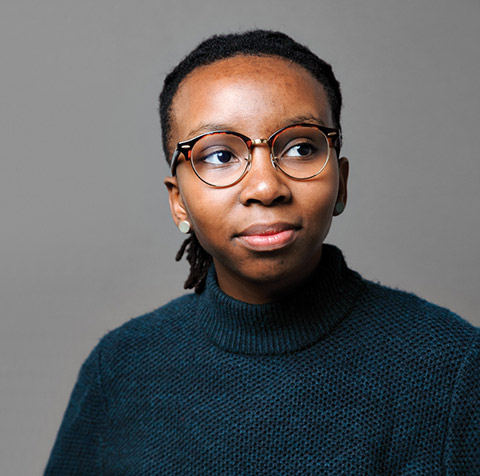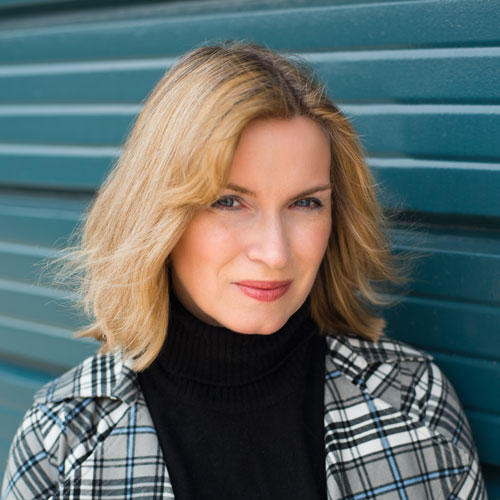At 19, U of T student Ayisha Lineo Gariba has already spent a third of her life running a successful business. As a preteen in her native Ghana, she started The Bacon Berry Card Co. to sell handmade birthday cards. Since then, she’s branched out into documentary filmmaking – she explores issues surrounding race, gender and sexuality – as well as graphic design and photography, all while meeting the demands of being a second-year student in women and gender studies at Woodsworth College. Here, Gariba talks to Cynthia Macdonald about how to be a creative force in the new economy.
What I study informs every aspect of my work.
My feature film, The Hallmark of Tolerance, is about anti-black racism and white supremacy in the Canadian landscape, and my social justice studies contributed to my understanding of these issues. So when I do panels and screenings now I talk about things I learn in school. I haven’t shared The Hallmark of Tolerance widely, because I like it to be accompanied by a discussion afterwards; I was able to do that at a recent screening of the film at Hart House. I don’t want anyone to watch this film and then say: ‘What do I do with these feelings now?’
You can start a business at any time.
I made a birthday card for my friend when I was 12. It was pretty intricate, like a pop-up card on springs. People started requesting cards, and I saw potential to make some money. That was the beginning of The Bacon Berry Card Co. Since moving to Canada in 2013, I’ve learned graphic design and now make bookmarks, art prints, stickers, colouring booklets and posters. The money I earn goes into other projects, such as films.
There’s an entrepreneurial revolution going on. A friend of mine started his first business at 20 and now has a digital record label. Musician friends who use his platform don’t have to wait around for an established record label or agent to say hey, we’re going to put you in the big leagues and take all your money. They can record something at home and access data that shows who’s listening to their music.
You’re never too young to think about finance.
From a very young age I was strategizing how to make more money from my allowance. If my parents or siblings needed immediate cash – online payment isn’t common in Ghana – I’d lend it to them. But I’d make sure it was close to the weekend when the bank was closed. That way I could stretch out their loan period, and collect more interest.
Think outside the rectangle.
I remember getting into a small argument with my business teacher about business cards. Why do they have to be rectangular and contain the information they do? I don’t have a fax number! My cards are bright pink and square. Cards don’t need to be in wallets; we have enough cards in there. I take a picture of people’s cards and archive them on my phone.
Be as proud as you are humble.
It’s important to give yourself the credit you deserve, but I also acknowledge my privilege. I attribute a lot of the success I’ve had to my parents, who met in graduate school and have worked very hard to make sure their children had more opportunities than they did. Historically, black women have not been paid properly for the work that they do. Deep down inside, I’m making art for another version of myself who couldn’t.
Watch Ayisha Lineo Gariba’s films
Recent Posts
People Worry That AI Will Replace Workers. But It Could Make Some More Productive
These scholars say artificial intelligence could help reduce income inequality
A Sentinel for Global Health
AI is promising a better – and faster – way to monitor the world for emerging medical threats
The Age of Deception
AI is generating a disinformation arms race. The window to stop it may be closing






One Response to “ Off Script ”
Ayisha's story is an inspiring one to the younger generation. Soar higher, girl. The sky is the limit.